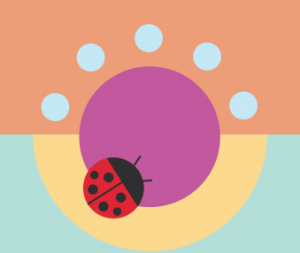Global Gender Gap: Australian Women are Feeling the Effects
Once upon a time (2006, in fact), Australia proudly held 15th place in the Global Gender Gap Index against 156 countries. That’s the top 10% of all countries ranked. However, is of 2021, Australia now sits at a dismal 50th place – a decline of 17% in 15 years.
Here we take a look at where Australia ranks on a global scale, which countries are getting it right, how the pandemic has affected female employment, and what we need to do to get back on track.
What is the Global Gender Gap Index?
Benchmarking 156 countries against four key areas, the Index monitors women’s wellbeing in each country over a period of time, with the ability to predict improvement or decline in the four dimensions explored. The categories observed are:
- Economic Participation and Opportunity
- Educational Attainment
- Health and Survival
- Political Empowerment
Where does Australia rank?
Currently, Australia enjoys repeated success in Educational Attainment with a maintained ranking of 1st place. The same cannot be said for the other three dimensions.
Since the first Index calculations conducted in 2006, Australia has fallen from 12th to 70th place in terms of Economic Participation and Opportunity; 57th to an abysmal 99th in Health and Survival, and 32th to 54th in Political Empowerment.
Surprisingly, with an overall ranking of 50th, Australia is far behind a number of other Western countries, including:
- United States at 30th
- Canada at 24th
- UK at 23rd
- France at 16th
Even Mexico ranks higher at 34th and South Africa at an impressive 18th!
But why the massive decline? According to Senator Larissa Waters, Australia’s ranking is a “damning reflection” of the government’s failure to take action to improve women’s lives. Could she be correct?
Which countries are getting it right?
With reference to the Measure for Measure: Gender Equality in Australia (2020) report, “while other countries invest in national gender policy, target setting, data monitoring, and evaluation to satisfy international commitments and drive excellence in gender equality, Australia is getting left behind”. When compared to our Nordic friends on the other side of the world, it seems this observation is correct.
Sitting comfortably at 1st place for 12 years in a row, Iceland continues to be considered the most gender equal country in the world. Followed by Finland and Norway, New Zealand, Sweden, Nambia, Rwanda, Lithuania, Ireland and Switzerland. Iceland is the country we should be looking to for government actions and interventions that benefit the female population and its ability to thrive.
What’s the solution?
Saadia Zahidi, Managing Director of the World Economic Forum says, “If we want a dynamic future economy, it is vital for women to be represented in the jobs of tomorrow”. These jobs of tomorrow, according to the WEF include roles within new technology fields and human interaction industries such as :
- Green Economy
- Data and AI economy
- Engineering, Cloud Computing, Product Development
- Care economy
- Marketing, Sales, Content production
- People and Culture
At present, only two of the eight tracked ‘jobs of tomorrow’ clusters – People and Culture, and Marketing, Sales, Content, have achieved gender uniformity. All other categories currently show a stark underrepresentation of women.
While women can certainly upskill themselves, Senator Waters also argues that we need “immediate action from the government” to reverse Australia’s declining position on the Global Gender Gap Index.
“The government needs to implement the Respect@Work recommendations; legislate to end the gender pay gap and extend the remit of the Workplace Gender Equality Agency; make early childhood education free; fix paid parental leave; and make it easier for businesses to implement flexible working arrangements,” she says.
While gender-positive recovery policies and practices can address these potential challenges, the government also needs to invest further into the care sector and provide reasonable access to care leave for both men and women in the years to come.
Additionally, policies and practices need to focus on overcoming occupational gender discrimination, and sound, unbiased hiring and promotion processes will need implementation for better gender equality in the future.
Spotz supports female entrepreneurs and hard-working mums
The Spotz community was established upon the belief that women and mothers are capable of more than domestic chores, child-rearing and subservience in the workforce. We are a community of intelligent, like-minded women from a variety of backgrounds and experiences coming together to shine a light on female capability, success and achievement.
With Australia’s current Index rank in mind, we want to celebrate women and mums who have been left behind in the last 15 years. So why not visit our online store and treat yourself to a quality gift from a female entrepreneur?
Whether it’s a Spinach + Matcha Clay Mask to enhance your night-time beauty routine, or a gorgeous gold plated bracelet to show off at your next interview, we’ve got the perfect collection of self-appreciation gifts for you.
Sources Womens Agenda Global Gender Gap Report 2021 (Insight Report March 2021) Measure for Measure: Gender Equality in Australia (March 2020) World Economic Forum




